In America, tolerance is not a mood; it’s a covenant. We leave the public square wide so rival truths can breathe. But every covenant has its grammar. “Love your enemy” is not a license to let him burn the house down.
The question isn’t whether we tolerate ideas—we must. The question is when the method turns a creed into a weapon.
That seam is exactly where Nick Berg stands in Shadows of Tehran—an immigrant with a dual identity and a soldier’s eye, tracing how belief can be polished into courage or hammered into control.
His story reminds us to keep the square wide for faith and dissent—and the red lines bright against coercion, covert direction, and violence.
The mystic’s mirror
Mystics say truth arrives as light and shadow. Rumi writes of polishing the mirror of the self until it reflects reality rather than appetite. The first struggle—jihad al-nafs—is inward; only then can we argue in good faith outward.
A free society depends on this discipline. When zeal leaps the inward boundary, it seeks shortcuts: intimidation instead of persuasion, secrecy instead of accountability, sacred slogans in place of evidence. Tolerance becomes a shield only when we forget that its purpose is encounter, not conquest.
Nick Berg’s bridge
Nick Berg’s life sits precisely on this edge—raised in Tehran’s long shadow, remade in America, tempered in Special Operations, and then returned to the page to ask what freedom costs.
His story is a bridge between worlds where faith can nourish courage—or be conscripted by power.
It’s not an argument against belief; it’s a reminder that belief without discipline is tinder.
And discipline, in public life, looks like bright, narrow boundaries: no violence, no coercion, no covert direction; equal law for every hand that reaches into the square.
That’s how a nation honors conscience without surrendering to it.
Iran’s warning, the West’s temptation
Iran offers a cautionary mirror. When the state fuses creed to power, dissent becomes heresy; the public square shrinks until only obedience remains.
The West’s danger is different: not a single imposed orthodoxy, but a thousand private orthodoxies seeking to rule by pressure, threat, or manipulation while invoking “tolerance” as camouflage.
The mystic answer is old and stubborn: polish the mirror, tell the truth, draw the line at harm.
The civic answer is its twin: keep the field open for argument—and guard the rules that make argument possible.
Who lowers the shield?
Who decides when the shield drops? In a republic, no one, and everyone: juries and judges, editors and auditors, neighbors and rivals, all under law.
The test is simple, if not easy: does this act seek to silence rather than persuade, to coerce rather than convert, to hide a foreign hand rather than reveal a human face?
If so, tolerance has met its limit—not because we fear ideas, but because we refuse to mistake domination for dialogue.
Nick Berg’s lesson, and the mystics’, converge: widen your heart; narrow your harms. Let the square remain vast, but keep its red lines bright.
Then tolerance is not a shield for the intolerant; it is the shared space where even enemies must learn to speak as if the other might be right. And that, paradoxically, is how a free society survives its fiercest believers.
When tolerance was overstepped (real-world examples)
A permitted rally devolved into lethal violence when a participant used a car as a weapon, killing Heather Heyer. The case shows speech crossing into organized violence—and the shield of tolerance dropping in court.
Qur’an-burning events exploited assembly rules; counter-violence followed, and police were injured in several cities. Free expression remained protected, but public safety lines triggered targeted policing and later prosecutions.
Authorities banned Hamas activities nationwide and outlawed the group Samidoun after celebrations and incitement tied to terror—an example of drawing a bright line between lawful protest and support for proscribed violence.
Police reiterated that supporting a proscribed organisation (e.g., Hamas) at marches is illegal even while pro-Palestinian protest itself is lawful; large demonstrations saw arrests for incitement and for displays deemed support for banned groups (including later, after the proscription of Palestine Action, mass arrests for overt support).
DOJ charged Iranian actors for murder-for-hire and hack-and-leak operations on U.S. soil and online—covert foreign direction that drops the tolerance shield and moves into criminal disruption.
Tolerance Is a Covenant, Not a Loophole
Freedom doesn’t die from too many voices; it dies when we forget the rules that let voices meet without fear.
Nick Berg’s path—from Tehran’s shadow to America’s promise—reminds us that belief can be tempered into courage or forged into a weapon. The difference is discipline: polish the mirror within, and in public keep the field wide for argument—while drawing bright, narrow lines against coercion, covert direction, and violence.
Tolerance is a covenant, not a loophole. When methods cross the line, the shield must drop—by law, with evidence, under oversight—so the square can stay open for everyone else. That’s how we defend both faith and freedom without becoming what we oppose.
Widen the square. Narrow the harms. Keep the red lines bright—and be worthy of the liberty we claim.

























